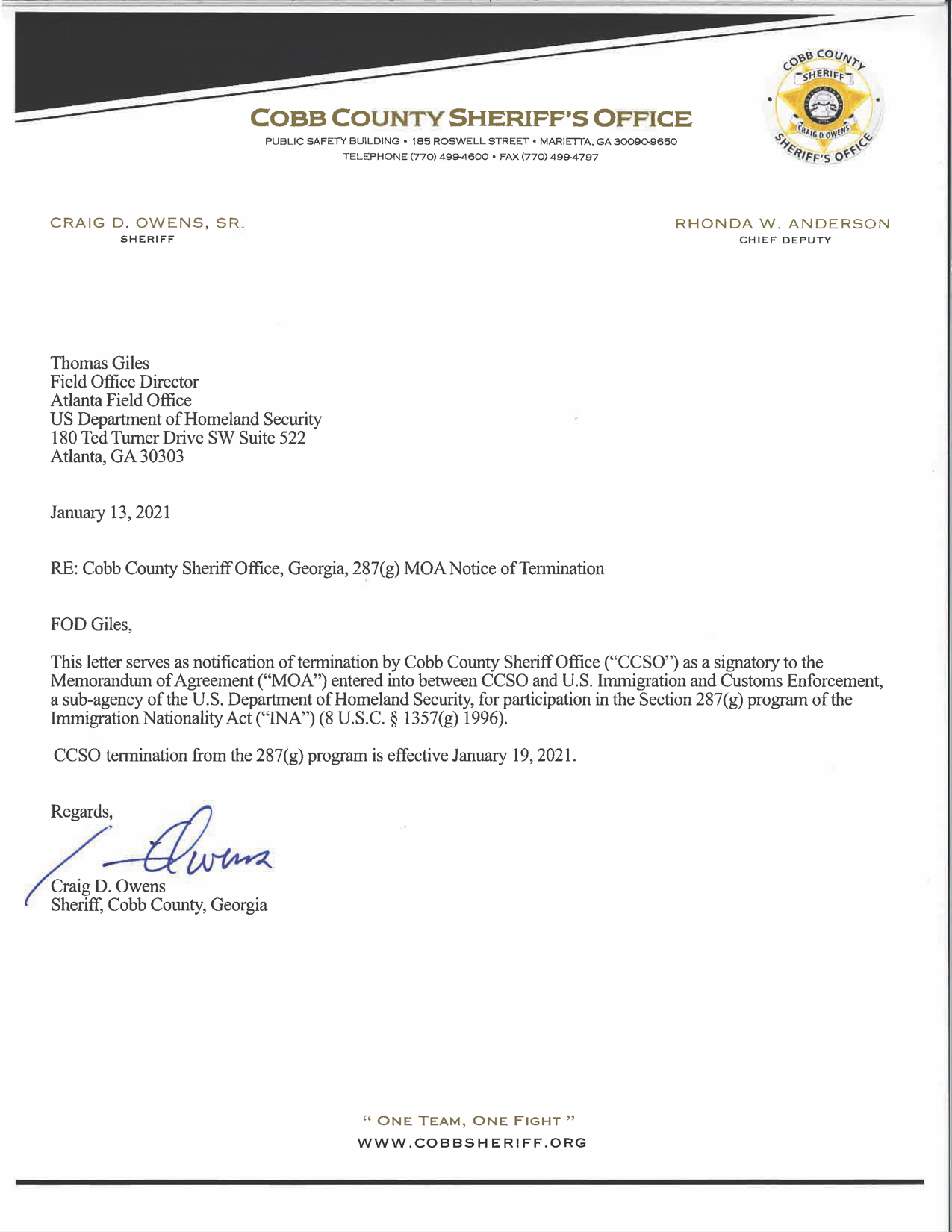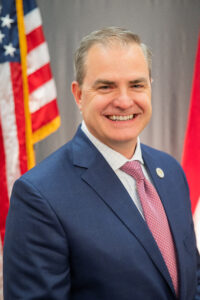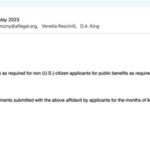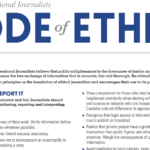
Update, June 13 with response from CCSO. Update: June 27, 2024 with second response.
Updated June 6, 3:00 PM. – I see now that I had a repeat sentence in the body of the ORR. Sorry. It was early and I blame my cat…
dak
Open Records request sent to the Cobb County Sheriff’s office 4:56 AM, Thursday, June 6, 2024.
Subject: 287 (g) and communications with U.S. DHS/ICE.
The below was composed and sent using the open records request contact form presented on the Cobb County Sheriff’s Office (CCSO) website. The auto reply received from CCSO assigns a case reference number: SO11386-060624 (also pasted below).
|

Cobb County Sheriff Craig Owens.
Photo credit: Marietta Daily Journal.
MDJ, January 19, 2021
Bold, necessary, and overdue”: Sheriff Owens declares end to 287(g) immigration enforcement
“Cobb County Sheriff Craig Owens holds a copy of the memo formally ending the office’s involvement with immigration enforcement. Commonly known under the name 287(g), ending the program was a major promise of Owens’ campaign.”
__
ORR sent today:
Please send me copies of any and all CCSO letters, communications (electronic or hard copy) to and/or from U.S. Dept. of Homeland Security / Immigration and Customs Enforcement concerning, mentioning and/or pertaining to beginning or terminating any MOU/MOA with ICE for 287 (g) authority. Date range: 1 November 2020 to 30 April, 2021.
Please send me a copy of any/all CCSO internal memo(s) or communication(s) concerning or mentioning any effort, inquiry, question, intent or decision to terminate the agreement or MOU/MOA with ICE for 287 (g) authority that existed under Cobb Sheriff Neal Warren for the same date range as above. To be clear, this request includes a copy of the memo held up by Sheriff Craig Owens at an event in January, 2021 in which Sheriff Owens reportedly told the audience he had terminated the 287 (g) agreement and authority as reported by multiple news outlets including the Atlanta Journal Constitution and the Marietta Daily Journal in January, 2021.
To be clear: This request includes the request for a copy of the memo pictured in this MDJ news report https://www.mdjonline.com/news/bold-necessary-and-overdue-sheriff-owens-declares-end-to-287-g-immigration-enforcement/article_457130f8-5a7e-11eb-a19f-9331a3092882.html (tagged with the caption “Courtesy Cobb County Sheriff’s Department. Cobb County Sheriff Craig Owens holds a copy of the memo formally ending the office’s involvement with immigration enforcement. Commonly known under the name 287(g), ending the program was a major promise of Owens’ campaign”).
Please send me a copy of any existing MOU/MOA between CCSO and U.S. DHS/ICE concerning or granting CCSO 287 (g) authority.
Please contact me with any questions on the above. We expect this request to be expanded.
D.A. King
Marietta, GA. 30066
404-
President, The Dustin Inman Society
https://newdustininmansociety.org
_____
Screenshot of receipt confirmation received from Cobb County Sheriff’s office via email minutes after we sent the above request:



Dear Mr./Ms. KING,
Cobb County received an open records request from you on June 06, 2024. You requested the following:
Please send me copies of any and all CCSO letters, communications (electronic or hard copy) to and/or from U.S. Dept. of Homeland Security / Immigration and Customs Enforcement concerning, mentioning and/or pertaining to beginning or terminating any MOU/MOA with ICE for 287(g) authority. Date range: 1 November 2020 to 30 April, 2021.
Please send me a copy of any/all CCSO internal memo(s) or communication(s) concerning or mentioning any effort, inquiry, question, intent or decision to terminate the agreement or MOU/MOA with ICE for 287 (g) authority that existed under Cobb Sheriff Neal Warren for the same date range as above. To be clear, this request includes a copy of the memo held up by Sheriff Craig Owens at an event in January, 2021 in which Sheriff Owens reportedly told the audience he had terminated the 287 (g) agreement and authority as reported by multiple news outlets including the Atlanta Journal Constitution and the Marietta Daily Journal in January, 2021.
To be clear: This request includes the request for a copy of the memo pictured in this MDJ news report (https://www.mdjonline.com/news/bold-necessary-and-overdue-sheriff-owens-declares-end-to-287-g-immigration-enforcement/article_457130f8-5a7e-11eb-a19f-9331a3092882.html (tagged with the caption “Courtesy Cobb County Sheriff’s Department. Cobb County Sheriff Craig Owens holds a copy of the memo formally ending the office’s involvement with immigration enforcement. Commonly known under the name 287(g), ending the program was a major promise of Owens’ campaign”).
Please send me a copy of any existing MOU/MOA between CCSO and U.S. DHS/ICE concerning or granting CCSO 287 (g) authority.
We are diligently working on your request but need additional time to fulfill your request. We plan to have a response to you on or before 6/21/24.
Sincerely,
Cobb County Sheriff’s Office

RE: Open Records Request of June 06, 2024, Reference # S011386-060624
Please send me copies of any and all CCSO letters, communications (electronic or hard copy) to and/or from U.S. Dept. of Homeland Security / Immigration and Customs Enforcement concerning, mentioning and/or pertaining to beginning or terminating any MOU/MOA with ICE for 287(g) authority. Date range: 1 November 2020 to 30 April, 2021.
Please send me a copy of any/all CCSO internal memo(s) or communication(s) concerning or mentioning any effort, inquiry, question, intent or decision to terminate the agreement or MOU/MOA with ICE for 287 (g) authority that existed under Cobb Sheriff Neal Warren for the same date range as above. To be clear, this request includes a copy of the memo held up by Sheriff Craig Owens at an event in January, 2021 in which Sheriff Owens reportedly told the audience he had terminated the 287 (g) agreement and authority as reported by multiple news outlets including the Atlanta Journal Constitution and the Marietta Daily Journal in January, 2021.
To be clear: This request includes the request for a copy of the memo pictured in this MDJ news report (https://www.mdjonline.com/news/bold-necessary-and-overdue-sheriff-owens-declares-end-to-287-g-immigration-enforcement/article_457130f8-5a7e-11eb-a19f-9331a3092882.html (tagged with the caption “Courtesy Cobb County Sheriff’s Department. Cobb County Sheriff Craig Owens holds a copy of the memo formally ending the office’s involvement with immigration enforcement. Commonly known under the name 287(g), ending the program was a major promise of Owens’ campaign”).
Please send me a copy of any existing MOU/MOA between CCSO and U.S. DHS/ICE concerning or granting CCSO 287 (g) authority.
Cobb County Sheriff’s Office

To monitor the progress or download responsive records from Cobb County Sheriff’s Office, please login to the Open Records Center.










































You must be logged in to post a comment.